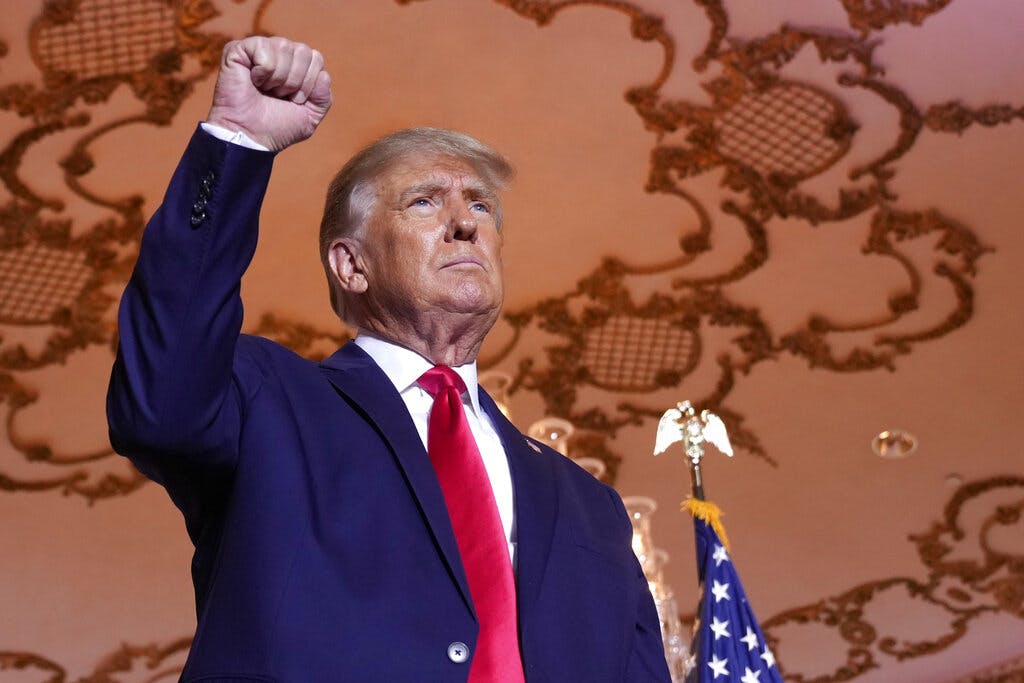The Mar-a-Lago Prosecution Is Not Going Well for Jack Smith, Who Accuses Trump of Making ‘Exaggerated’ Arguments
The prosecutor already faces a temporary delay, and a trial after Election Day 2024 looms as a possibility.

Judge Aileen Cannon’s pausing of Special Counsel Jack Smith’s Mar-a-Lago prosecution of President Trump could signal a rocky road ahead for the government’s documents case against the former commander in chief.
Telegraphing the stakes is a Monday filing to Judge Cannon from Mr. Smith that accuses the 45th president of proffering “inaccurate or incomplete” arguments in his push for a delay. The special counsel maintains that the former president and his two co-defendants, the valet Waltine Nauta and the technology specialist Carlos de Oliveira, “provide no credible justification to postpone a trial that is still seven months away.”
Mr. Smith tells Judge Cannon that he “has provided the defendants extensive, prompt, and well-organized unclassified discovery, yielding an exhaustive roadmap of proof of the detailed allegations.” He notes that he has organized the “materials logically, explaining the productions’ content and organization through informative cover letters.” The special counsel calls Mr. Trump’s arguments for a delay “distorted and exaggerated.”
The documents case, unlike Mr. Smith’s January 6 case against Mr. Trump or District Attorney Alvin Bragg’s hush money prosecution of the former president, would appear to be rooted in well-worn black letter law — well-established legal practice — rather than exotic legal theories. It possesses a simplicity that District Attorney Fani Willis’s sprawling racketeering indictment lacks. It could be the strongest of the four criminal cases Mr. Trump faces.
The Mar-a-Lago case, though, is being presided over by Judge Cannon, who has, from its inchoate stages, displayed a stubborn solicitude in respect of due process as the government pursues its effort to convict Mr. Trump for retaining classified documents after his presidency and allegedly resisting efforts to return them.
Judge Cannon on Friday issued a temporary stay on a filing deadline for Mr. Trump, just days after the former president requested that the jurist move the trial to December from May, over the horizon of the 2024 presidential election, for which Mr. Trump is the Republican frontrunner. If he regains the White House, he would control the Department of Justice, of which Mr. Smith, in his capacity as special counsel, is entitled to a measure of protection, though he reports to the attorney general.
While Judge Cannon has not ruled on that scheduling request, her decision to delay a series of deadlines between October and May relating to the prosecution’s obligation to share classified documents with Mr. Trump “pending consideration and resolution” of the scheduling issue suggests that she is considering the former president’s delayed timetable.
Mr. Trump’s request cited “unjust efforts” to “foist rushed CIPA litigation on the Court, President Trump, and his co-defendants.” The reference is to the Classified Information Procedures Act, which governs how secret materials are used at trial. Judge Cannon’s order was paperless, meaning that it was not accompanied by a fulsome explanation.
The DOJ Archives explain that CIPA “balances the right of a criminal defendant with the right of the sovereign to know in advance of a potential threat from a criminal prosecution to its national security,” and that it neither “adds to nor detracts from the substantive rights of the defendant or the discovery obligations of the government.”
Mr. Trump, though, argues that these “substantive rights” are being impaired by the number of prosecutions against him. His lawyers write that the “March 4, 2023 trial date in the District of Columbia, and the underlying schedule in that case, currently require President Trump and his lawyers to be in two places at once,” limiting his ability to mount a defense.
The former president also argues that delays in building a secure facility in Florida for him to review the classified documents at the center of the case against him mean that “the logistics of that arrangement are unworkable.” Mr. Trump has pushed for dispensation to review those materials at Mar-a-Lago, the same location where he is accused of unlawfully housing top-secret materials.
Mr. Smith accuses Mr. Trump of attempting to “intentionally derail” the trial and maintains that nine of the 32 documents that bear Espionage Act charges are so sensitive that they can only be viewed at the District of Columbia, at a bespoke facility meant to limit access to the nation’s secrets.
If she grants Mr. Trump’s request for a postponed trial, it would not be the first time that Judge Cannon put the brakes on efforts by prosecutors to work through the Mar-a-Lago materials. Last year, she froze the government’s access to the documents seized at the Palm Beach manse, pending review by an outside supervisor or special master.
That process was halted by a panel of three riders of the 11th United States Appeals Circuit, who accused the judge of attempting a “radical reordering of our case law limiting the federal courts’ involvement in criminal investigations.” They added that her approach would “violate bedrock separation-of-powers limitations.”
Mr. Smith has not yet turned to the appellate riders to force Judge Cannon’s hand when it comes to scheduling a trial. Trial judges are granted broad discretion when it comes to crafting their calendars, but should the judge grant a delay until past the election, Mr. Smith could gamble on an appellate reversal.

